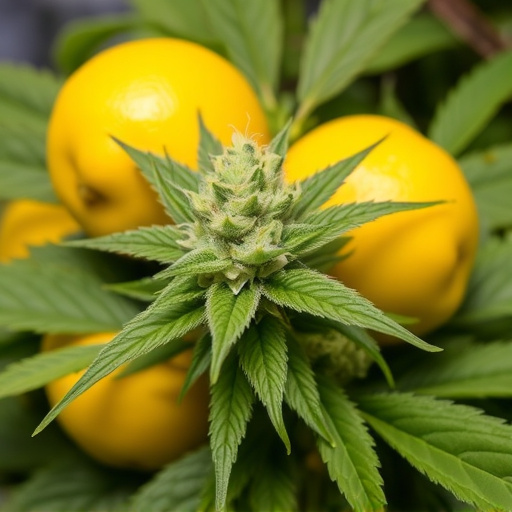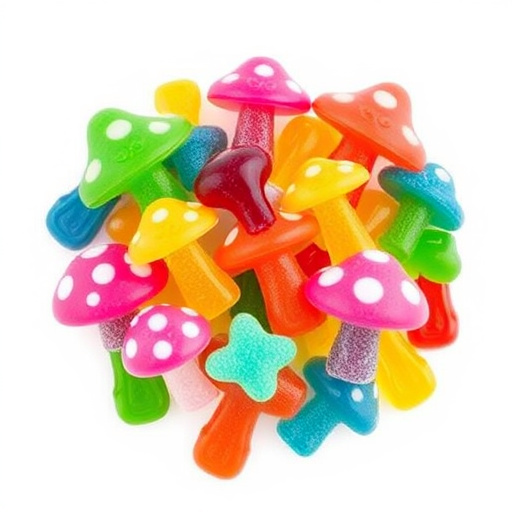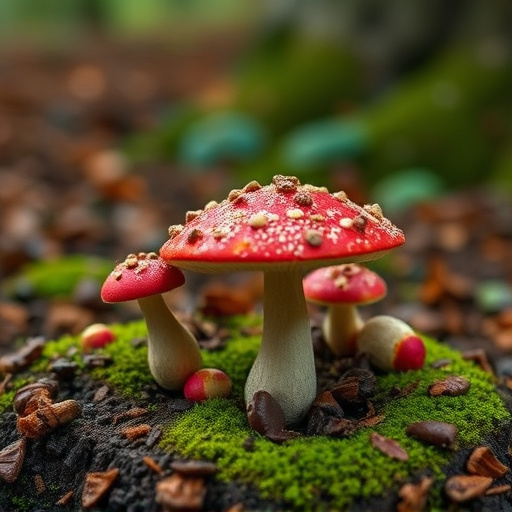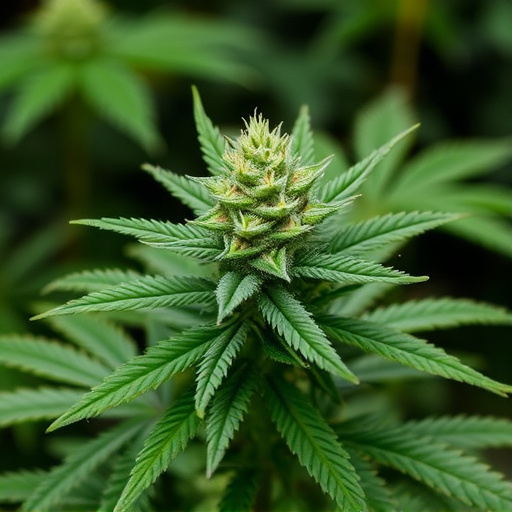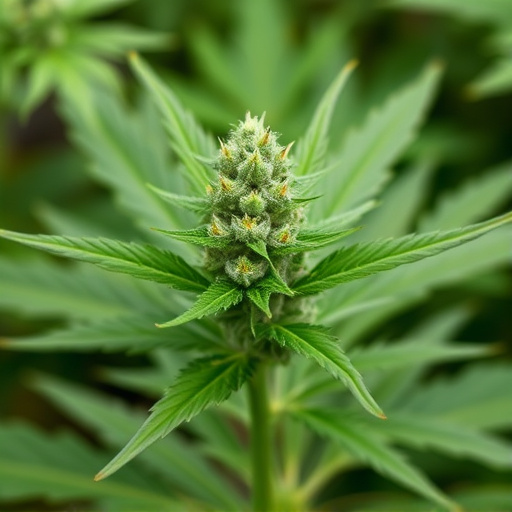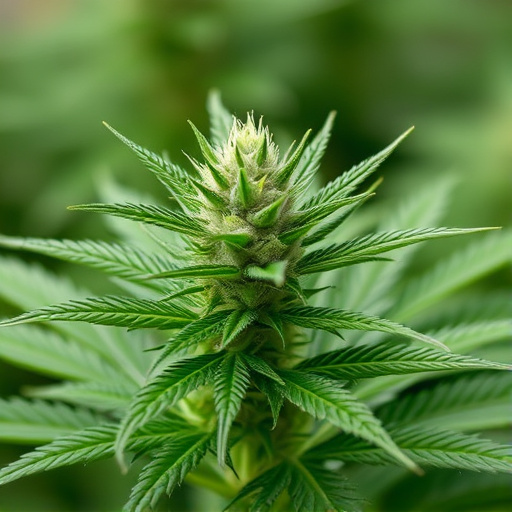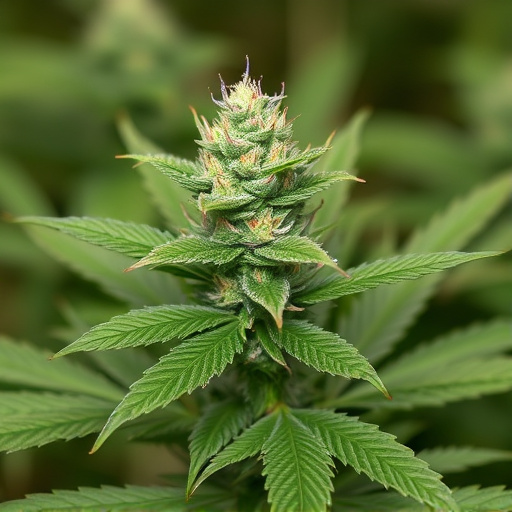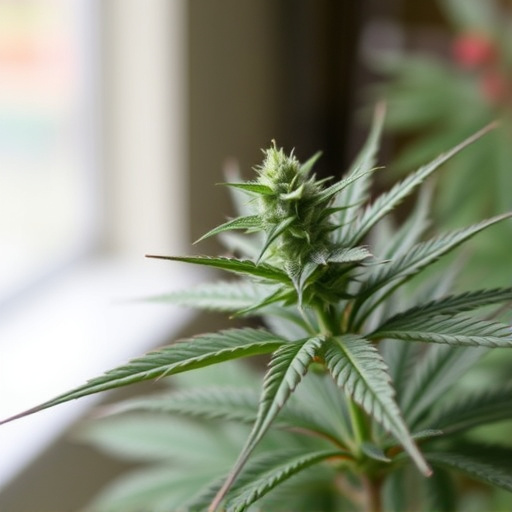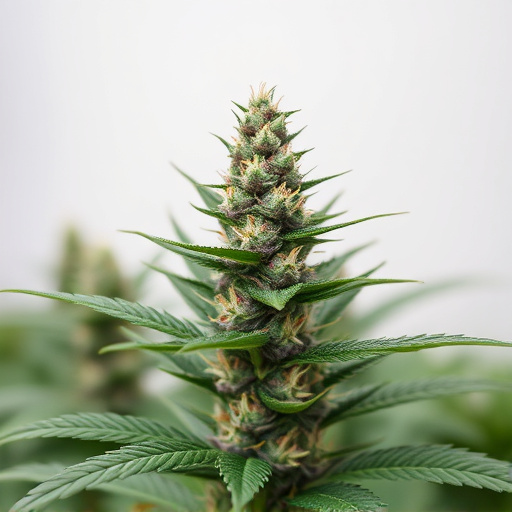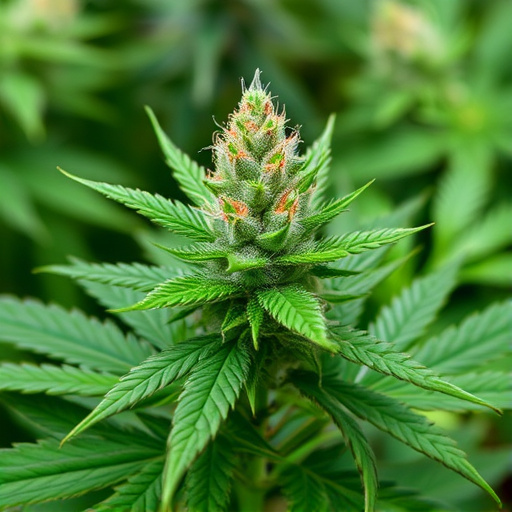Cannabidiol (CBD) in non-intoxicating cannabis strains shows promise for managing ADHD symptoms by interacting with the endocannabinoid system, regulating mood, and reducing impulsivity. Popular strains rich in myrcene and linalool offer additional therapeutic benefits. Choosing CBD-dominant strains with lower THC content ensures therapeutic effects without psychoactive side effects. Personalizing treatment through research and consideration of specific ADHD symptoms, terpene profiles, aroma, and lifestyle enhances the effectiveness of cannabis strains for ADHD management.
“Unraveling the science behind CBD-dominant strains and their potential benefits, especially for managing ADHD symptoms. Cannabis strains enriched with Cannabidiol (CBD) have gained attention for their therapeutic effects on the brain. This article explores how these strains interact with our endocannabinoid system to offer relief from ADHD’s challenges. We’ll delve into specific cannabis strains known for their efficacy and guide you in choosing the ideal CBD-dominant strain to unlock optimal benefits.”
- Understanding CBD and Its Effects on the Brain
- The Role of Cannabis Strains in Managing ADHD Symptoms
- Choosing the Right CBD-Dominant Strain for Optimal Benefits
Understanding CBD and Its Effects on the Brain
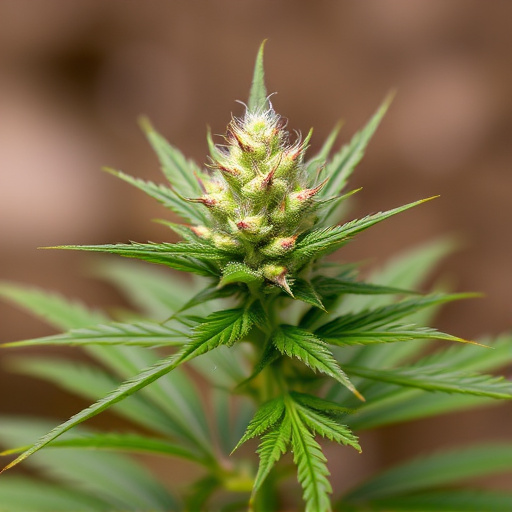
Cannabidiol (CBD) is a non-psychoactive compound found in cannabis plants, known for its diverse therapeutic properties. Unlike tetrahydrocannabinol (THC), CBD doesn’t induce feelings of euphoria or intoxication. Its effects on the brain are complex and multifaceted. Research suggests that CBD interacts with the endocannabinoid system (ECS), a network of receptors and enzymes within the body that regulates various physiological processes, including mood, memory, and inflammation.
In the context of cannabis strains for ADHD, CBD is believed to offer potential benefits due to its ability to modulate neural activity. It may help reduce symptoms like impulsivity, inattention, and hyperactivity by influencing neurotransmitters such as dopamine and serotonin. Additionally, CBD’s anti-inflammatory properties might alleviate cognitive impairments often associated with ADHD. However, more research is needed to fully understand the specific mechanisms behind these effects.
The Role of Cannabis Strains in Managing ADHD Symptoms
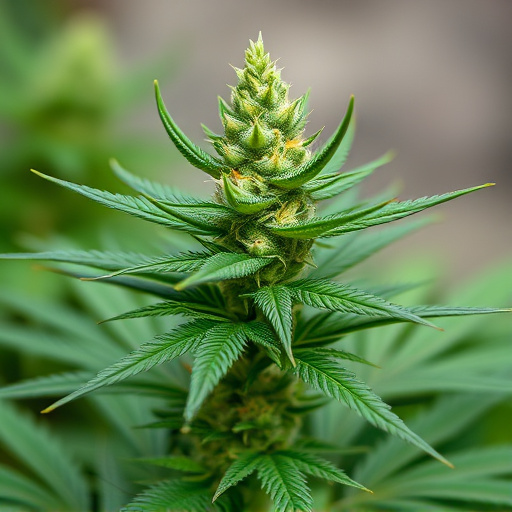
Cannabis strains that are CBD-dominant have gained attention for their potential in managing symptoms of Attention Deficit Hyperactivity Disorder (ADHD). While more research is needed, early studies suggest that the non-intoxicating properties of these strains may help regulate mood and reduce impulsivity — common challenges faced by individuals with ADHD. The key compound here is cannabidiol (CBD), which has shown promise in balancing the endocannabinoid system, a network within the body that plays a role in cognitive function and behavioral regulation.
Cannabis strains for ADHD are often chosen for their specific cannabinoid profiles and terpene content. Terpenes, aromatic compounds found in cannabis, can further enhance the therapeutic effects of CBD by interacting with receptors in the brain and nervous system. Strains high in myrcene, for example, are known for their calming effects, while linalool is associated with improved sleep and reduced anxiety — benefits that can be particularly valuable for those with ADHD who may struggle with insomnia or restlessness.
Choosing the Right CBD-Dominant Strain for Optimal Benefits

When considering CBD-dominant strains for optimal benefits, particularly for conditions like ADHD, it’s crucial to understand that not all strains are created equal. Different cannabis strains have unique chemical profiles, and CBD levels can vary significantly between them. For ADHD, strains with higher amounts of CBD and lower THC (tetrahydrocannabinol) are typically preferred as they offer potential therapeutic benefits without the psychoactive effects that can be overwhelming for some individuals.
Choosing a strain with a balance of these cannabinoids is key. High-CBD strains often provide a calmer, more focused state without the mental cloudiness associated with high-THC products. Researching specific strains known for their ability to manage symptoms of ADHD, such as anxiety and hyperactivity, can be beneficial. Additionally, considering personal preferences for flavor, aroma, and growth characteristics ensures that the chosen strain not only offers potential therapeutic advantages but also aligns with individual tastes and lifestyles.
CBD-dominant strains have shown promise in managing ADHD symptoms, offering a natural alternative for those seeking relief from traditional medications. By understanding how CBD interacts with the brain and selecting the right strain, individuals can experience improved focus, reduced impulsivity, and better overall well-being. Cannabis strains for ADHD provide a unique opportunity to harness the power of nature for enhanced mental clarity and calmness, potentially revolutionizing symptom management in this condition.



